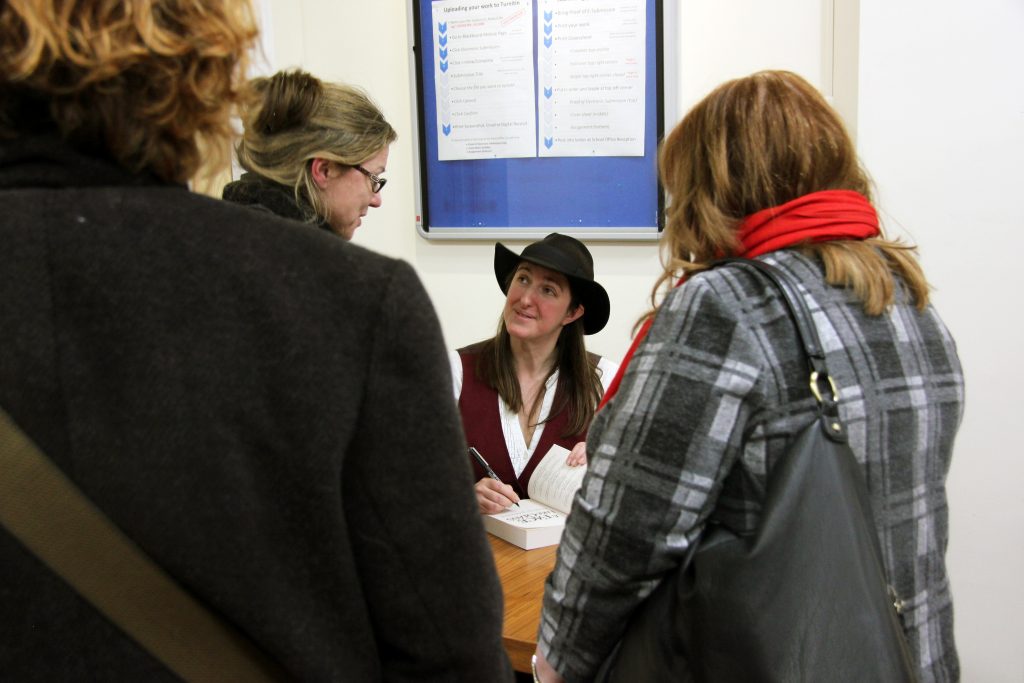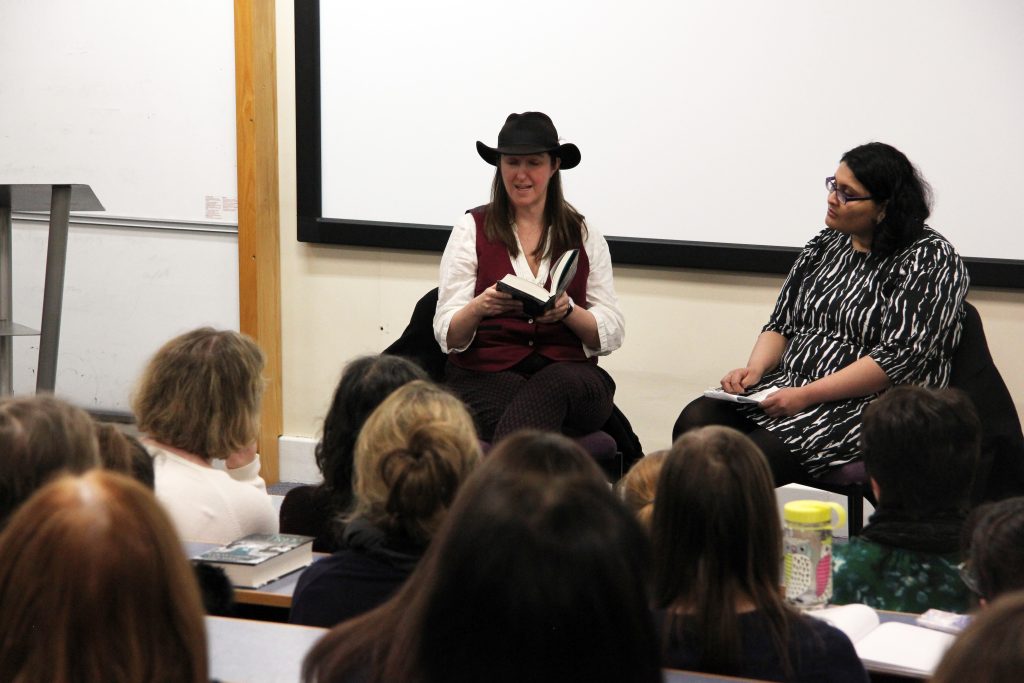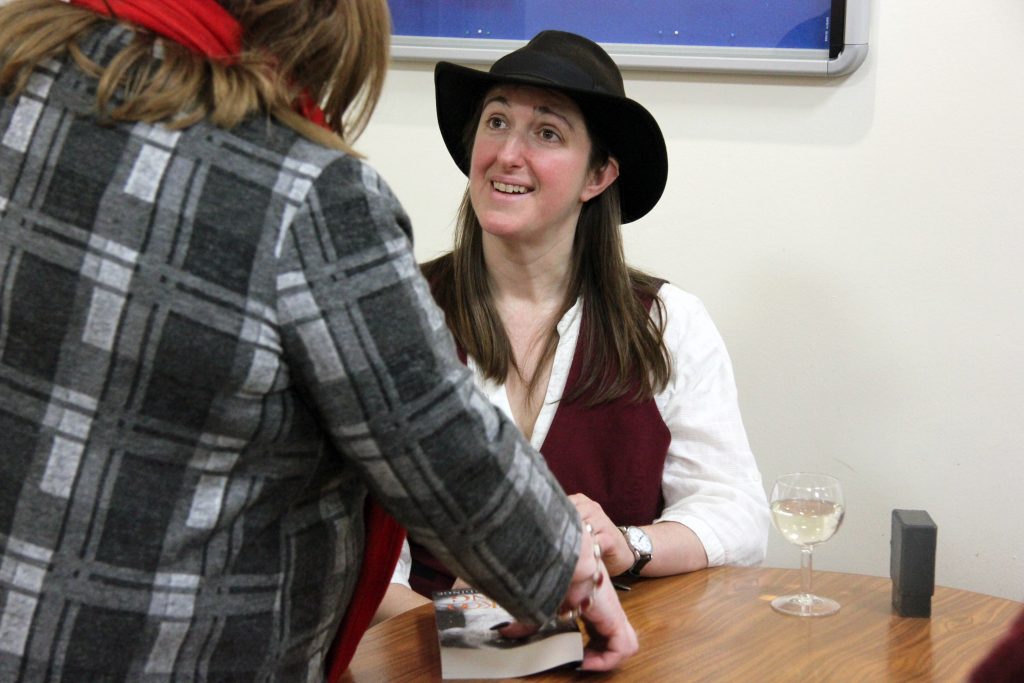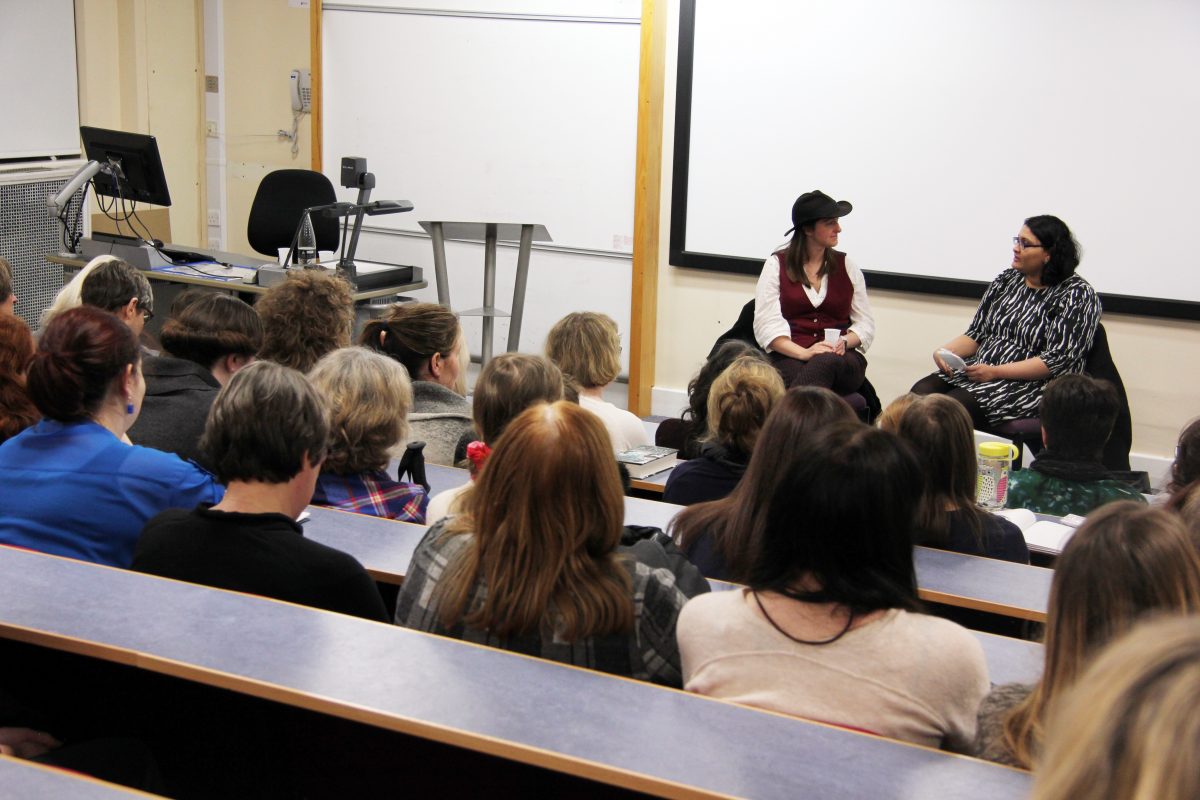Last month, Newcastle University’s Children’s Literature Unit and Seven Stories: The National Centre for Children’s Books were delighted to welcome Frances Hardinge, award-winning author of The Lie Tree, to Newcastle for a very special event.
In conversation with the Children’s Literature Unit’s Aishwarya Subramanian, Frances talked about the borders between fantasy and reality and the inspiration for her writing. I asked Aishwarya about the experience of hosting the event…

Hi Aishwarya! Thank you so much for chairing Fantasy Worlds with Frances Hardinge. How was it for you?
It was terrifying! I’ve interviewed people before, but in print, where you have the luxury of editing (and of not being in front of a big audience). Once we’d got past the first couple of questions, though, it was a lot of fun.
How did the opportunity to take part in this event come about?
I’d discussed Frances’ last two books with other people in the Children’s Literature Unit as part of our Carnegie shadowing group in 2015 and 2016, and so everyone knew I had an interest in her work. Plus, my research is on British children’s fantasy, so I think they were hoping I’d have lots of things to ask.
What do you like about Frances’ writing?
Her books are odd and twisty and full of joy in language. Those are things I really responded to as a child (and still do). They’re also full of important things like moral complexity and revolutions and angry little girls. As an adult, I really appreciate that her books are pitched at a more middle-grade than young adult audience (insofar as those categories mean anything), because middle-grade fiction just doesn’t get enough love and it’s really good to see someone doing it so well and being celebrated for it.

How did you prepare for the event?
I speed-read (or tried to) my way through all her work again and wrote down many questions, most of which I ended up not asking because they were too specific. I didn’t quite manage to read every book—it was probably obvious to the audience which of the books were most fresh in my mind!
Were you surprised by any of the answers Frances gave to the questions you asked?
Not really—in most cases I was asking things I genuinely just wanted to know, so had no prior expectations of what she would answer. I did have a broad outline of what I wanted to discuss during the conversation, and had to reshuffle my questions a bit as things went on.
Tell me about your PhD research.
I study the presentation of physical space in British children’s fantasy over the mid-twentieth century, and connect that with the spatial politics of the end of the British Empire—essentially reading British fantasy as a form of postcolonial literature. I promise it’s a lot more fun than it sounds (and I get to write about some of my favourite books!).

Fantasy Worlds with Frances Hardinge was jointly hosted with Seven Stories. How have Seven Stories enhanced your studies at Newcastle?
My work is mostly text-based, so I’ve had less chances to use the archive than some researchers. But my research means that I have to think about things like what “British” children’s literature means, and nationhood, and heritage, and so having the national archive to hand is great. Plus, Seven Stories is a big part of why we’ve been able to establish a community of people who work on children’s literature, and having access to that community and the conversations it generates has been invaluable.
What have you learnt from hosting Fantasy Worlds with Frances Hardinge?
To rehearse my introductions, and not to try to speed read seven books! (Alternatively, never to interview prolific authors.)
Thanks Aishwarya! Aishwarya will be blogging as part of the Children’s Literature in Newcastle blog and maintains a personal children’s literature blog, Practically Marzipan. You can also find her on twitter @actuallyaisha.


